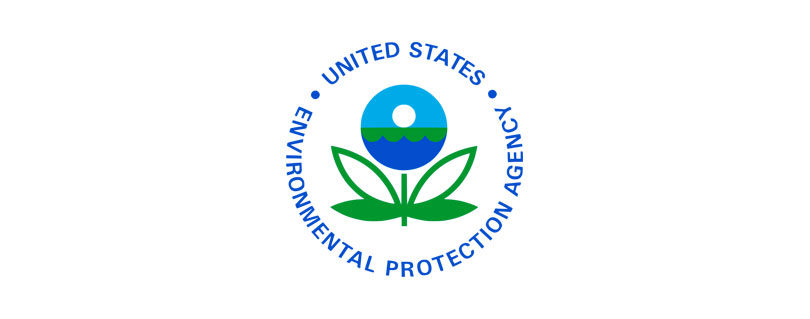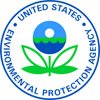Biden-Harris Administration Announces $38 Million in Bipartisan Infrastructure Law Funding to Address Emerging Contaminants like PFAS in Drinking Water in Massachusetts
Publilshed by the U.S. Environmental Protection Agency (EPA)
BOSTON (February 13, 2023) – Today, the U.S. Environmental Protection Agency (EPA) announced $38,204,000 from President Biden’s Bipartisan Infrastructure Law to address emerging contaminants, like Per- and Polyfluoroalkyl Substances (PFAS) in drinking water in Massachusetts. This investment, which is allocated to states and territories, will be made available to communities as grants through EPA’s Emerging Contaminants in Small or Disadvantaged Communities (EC-SDC) Grant Program and will promote access to safe and clean water in small, rural, and disadvantaged communities while supporting local economies.
“Too many American communities, especially those that are small, rural, or underserved, are suffering from exposure to PFAS and other harmful contaminants in their drinking water,” said EPA Administrator Michael Regan. “Thanks to President Biden’s leadership, we are investing in America and providing billions of dollars to strengthen our nation’s water infrastructure while safeguarding people’s health and boosting local economies. These grants build on EPA’s PFAS Strategic Roadmap and will help protect our smallest and most vulnerable communities from these persistent and dangerous chemicals.”
“Today’s grant announcement is one significant step in EPA’s comprehensive PFAS Roadmap to support our state partners as we aggressively tackle PFAS in drinking water, protect public health, and provide critical information quickly and transparently,” said EPA New England Regional Administrator and Co-Chair of EPA’s Council on PFAS David W. Cash. “This funding from the Bipartisan Infrastructure Law will target resources to small or disadvantaged communities most in need of assistance and will speed up our important work reducing PFAS and other emerging contaminants in drinking water, especially in communities that are challenged by lack of capacity and funding.”
“Clean drinking water should be a right, not a privilege, for all people across our Commonwealth. It’s time to finally make PFAS ‘forever chemicals’ into ‘never chemicals,'” said U.S. Senator Ed Markey. “Thanks to major investments in the Bipartisan Infrastructure Law, the EPA can now take further steps to protect the health and safety of disadvantaged and rural communities from dangerous pollutants and aging infrastructure.”
“Too many children and families in Massachusetts and across the country are unknowingly exposed to dangerous PFAS contaminants that can have devastating impacts on their health and well-being,” U.S. Representative Jim McGovern said. “It’s clear more can be done to monitor and mediate water supplies, which is why Congress and President Biden fought hard for more funding to ensure every community has access to clean and safe drinking water. Today’s investment provided by the Bipartisan Infrastructure Law brings us closer to securing safe drinking water for everyone. I look forward to seeing the many positive effects this money has on our Commonwealth’s communities.”
“Families in Massachusetts’ Fifth District know all too well the reality and risks of PFAS contamination,” said U.S. Representative Katherine Clark. “I am proud to have joined President Biden and Democrats in Congress in securing transformative resources to combat this crisis through our historic Infrastructure Law. This latest investment will soon be put to work detecting and removing pollutants – helping ensure that every Massachusetts family has access to clean, safe drinking water.”
“The Healey-Driscoll Administration is grateful for this important funding from President Biden’s Bipartisan Infrastructure Law. This will support the ongoing work to ensure clean and safe drinking water in small and disadvantaged communities,” said Massachusetts Energy and Environmental Affairs Secretary Rebecca Tepper. “Massachusetts leads the nation in addressing PFAS contamination and supporting local water suppliers and this federal investment will continue the Commonwealth’s efforts to protect the public health.”
The Bipartisan Infrastructure Law invests $5 billion over five years to help communities that are on the frontlines of PFAS contamination reduce PFAS in drinking water. EPA announced the funds for Massachusetts as part of an allotment of $2 billion to states and territories that can be used to prioritize infrastructure and source water treatment for pollutants, like PFAS and other emerging contaminants, and to conduct water quality testing.
EPA is also releasing the Emerging Contaminants in Small or Disadvantaged Communities Grant Implementation document. The implementation document provides states and communities with the information necessary to use this funding to address local water quality and public health challenges. These grants will enable communities to improve local water infrastructure and reduce emerging contaminants in drinking water by implementing solutions such as installing necessary treatment solutions.
Today’s actions represent a significant milestone within the Biden-Harris Administration’s commitments to combat PFAS pollution and safeguard drinking water, and specifically EPA’s October 2021 PFAS Strategic Roadmap. Under the Roadmap, EPA is working across the agency to protect the public from the health impacts of PFAS. EPA has taken a number of actions to deliver progress on PFAS including:
- Proposing to designate two PFAS as CERCLA hazardous substances. If finalized, this will be a critical step toward increasing transparency around releases of PFAS and holding polluters accountable for cleaning up their contamination.
- Releasing drinking water health advisories. Acting in accordance with EPA’s mission to protect public health and keep communities and public health authorities informed when new science becomes available, the Agency issued drinking water health advisories for four PFAS.
- Laying the foundation to enhance data on PFAS. This included an order under EPA’s National PFAS Testing Strategy requiring companies to conduct PFAS testing, and nationwide sampling through the Unregulated Contaminant Monitoring Rule for 29 PFAS in public drinking water systems.
- Expanding the scientific understanding of PFAS. The Agency issued more than 30 scientific publications by EPA researchers and released EPA’s PFAS Thermal Treatment Database.
- Translating the latest science into EPA’s cross-agency PFAS efforts. This included updating EPA’s contaminated site cleanup tables, developing new PFAS methods and conducting toxicity assessments, and issuing draft national recommended water quality criteria to protect aquatic life.
- Continuing engagement with the public. EPA’s PFAS work was informed by public webinars, stakeholder meetings, Congressional testimony, and engagement with EPA’s federal advisory committees.
In addition to this new grant, EPA is also working to propose a PFAS NPDWR in the coming weeks. The draft proposed rule is currently undergoing interagency review and EPA will issue the proposed rule for public comment when it clears the Office of Management and Budget (OMB). The agency anticipates finalizing the rule by the end of 2023. Together, with today’s announcement, these actions highlight EPA’s commitments outlined in the PFAS Strategic Roadmap to protect public health and the environment from the impacts of PFAS. They also illustrate the benefits of investing in water—protecting public health and the environment, addressing key challenges facing communities, and creating jobs.
Read the full article at: https://www.epa.gov/newsreleases/biden-harris-administration-announces-38-million-bipartisan-infrastructure-law-funding




